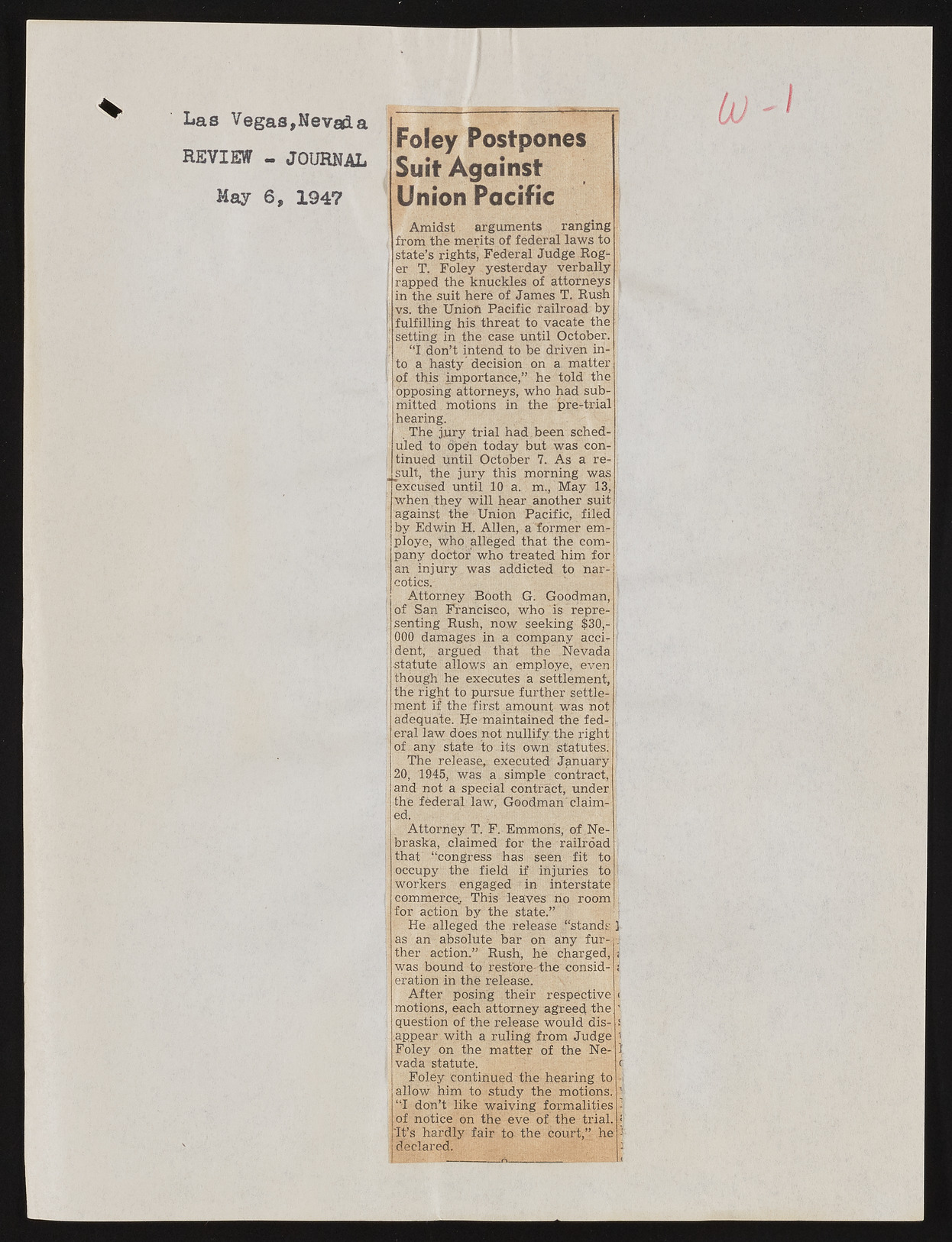Copyright & Fair-use Agreement
UNLV Special Collections provides copies of materials to facilitate private study, scholarship, or research. Material not in the public domain may be used according to fair use of copyrighted materials as defined by copyright law. Please cite us.
Please note that UNLV may not own the copyright to these materials and cannot provide permission to publish or distribute materials when UNLV is not the copyright holder. The user is solely responsible for determining the copyright status of materials and obtaining permission to use material from the copyright holder and for determining whether any permissions relating to any other rights are necessary for the intended use, and for obtaining all required permissions beyond that allowed by fair use.
Read more about our reproduction and use policy.
I agree.Information
Digital ID
Permalink
Details
Member of
More Info
Rights
Digital Provenance
Publisher
Transcription
Las Vegas,Nevada REVIEW - JOURNAL Hay 6, 1947 Foley Postpones Suit Against Union Pacific Amidst arguments ranging from the merits of federal laws to state’s rights, Federal Judge Roger T. Foley yesterday verbally rapped the knuckles of attorneys j in the suit here of James T. Rush vs. the Union Pacific railroad by fulfilling his threat to vacate the setting in the ease until October. “I don’t intend to be driven into a hasty decision on a. matter of this importance,” he told the opposing attorneys, who had submitted motions in the pre-trial hearing. , The jury trial had.been scheduled to Ope’n today but was continued until October 7. As a result,: the jury this morning was excused until 10 a. m,, May 13, when they will hear another suit against the Union Pacific, filed by Edwin H. Allen, a former employe, who. alleged that the company doctor who treated him for an injury was addicted to narcotics. Attorney Booth G. Goodman, of San Francisco, who'is repre- i senting Rush, now seeking $30,- 000 damages in a company acci- I dent, argued that the .Nevada • ?statute allows ah employe, even ; though he executes a settlement, the right to pursue further settle- : ment if the first amount was not adequate. He maintained the fed- 1 eral law does not nullify the right of any state to its own statutes. The release, executed January 20, 1945, was a simple contract, and not a special contract, under the federal law, Goodman'claimed. Attorney T. F. Emmons, of Nebraska, claimed for the railroad that “congress has seen fit to occupy the field if injuries to I workers engaged in interstate commerce,, This leaves no room . for action by the state.” • He alleged the release '“stands ] as an absolute bar on any fur- . ther , action.” Rush, he charged, is was bound to restore- the consid- i eration in the release. After posing their respective ( motions, each attorney agreed the ' question of the release would dis- '[ .appear with a ruling from Judge 1 Foley on the matter of the Ne-' 1 vada statute. U . . §tf f Foley continued the hearing to • allow him to study the motions. • “T don’t like waiving formalities of notice on the eve of the trial, 1 IfS hardly fair to the court,’’ he -1 declared' , - /

